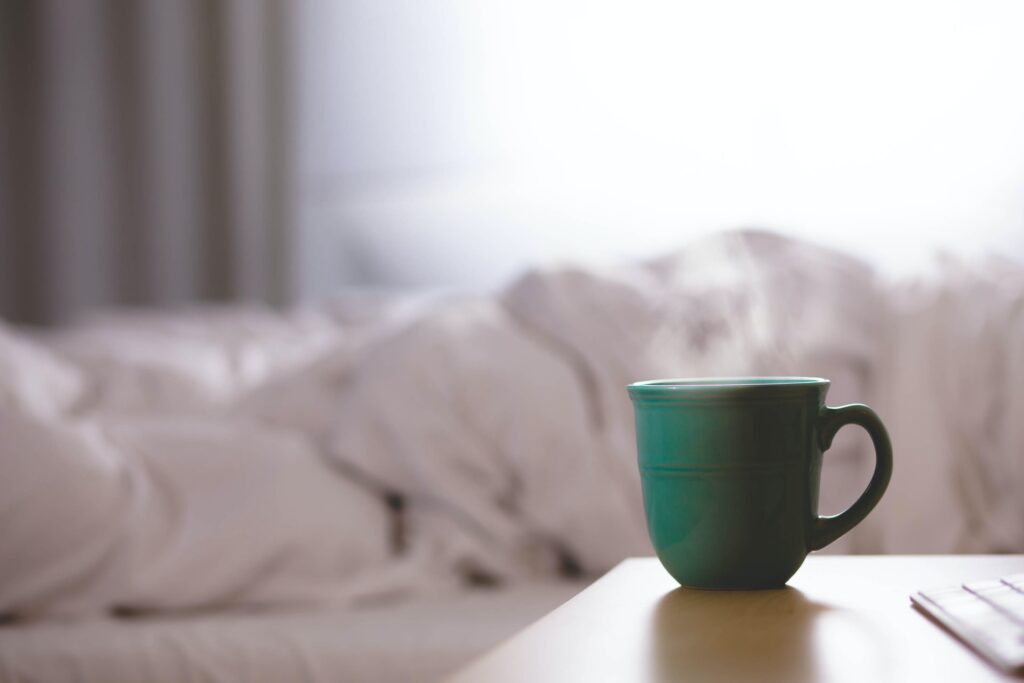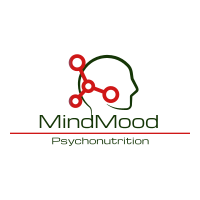Sleep matters more than ever.
After years and years of a culture of sleep less to produce more, sleep has been finally recognised as something to be taken seriously for optimum health.
According to the Sleep Council (2021), 40% of people in the UK suffer from sleep issues and 40.2 billion cost to the UK economy is caused by sleep deprivation.
Additionally, chronic poor sleep has been associated with adverse health outcomes: increased risk of weight gain and obesity, diabetes, hypertension, heart disease, stroke, depression and impaired immune and cognitive function (Watson et al. 2015).

My Experience
For many years, sleep didn’t matter to me. I thought I was invincible and I could keep living with ongoing insomnia and feeling exhausted every single day. I was embedded in this culture of sleep deprivation where sleeping poorly was seen as something ‘normal and positive’.
My tipping point was when I started studying Nutritional Therapy and practicing Buddhism in 2016 whilst working full-time as a Psychologist – my stress, anxiety and fatigue were off the roof and a lot caused by ongoing sleepless nights. At the same time, my understanding of how sleep is important to sustain life and how nutrition can support sleep has increased (Golem et al. 2014), my mindset has also changed and I was finally able to start healing my relationship with sleep.
Healing my relationship with sleep was much more than ‘fixing the physiological function of sleep’, it was the beginning of a deeper inner revolution of healing my relationship with myself – it was a form of self-respect and respect for the dignity of my life.
I finally accepted and allowed myself to a good night’s sleep.
Holistic Approach to Sleep
Thus, your sleep matters and to promote a good night’s sleep a holistic approach is needed:
- Diet and dietary habits: what foods and nutrients can promote sleep
- Sleep hygiene: behaviours and practices that increase sleep duration and quality
- Mindset: set of beliefs that affects how we think, feel and behave
Many times I have heard family, friends and clients saying they were doing everything they could to sleep better. They were eating the right foods, keeping a good sleep hygiene and spending a lot of money on sleep tracking devices and other lifestyle products.
Without a doubt these can contribute positively to a good night’s sleep however in this process one very important thing was forgotten: mindset changing. Their behaviours and attitudes may have started to change but deeply they were just scratching the surface. I was for sure. Something deeper was and it is needed to change someone’s mindset about sleep.

How can we then change our mindset about sleep and sleep better?
Changing core negative and unhelpful deep-seated beliefs about oneself starts with the understanding of the importance of respecting ourselves and ultimately our lives.
Sleep is a form of self-care
- Value your health & wellbeing: you are worthy of optimum health and wellbeing – until you don’t truly believe in it, it is likely that you will continue certain habits and keep self-sabotaging health promoting behaviours
- Prioritise your sleep: by prioritising your sleep over work or a Netflix marathon you are prioritising and respecting your physical and emotional health
- Change may be difficult but it’s not impossible: accept that long-term and sustainable changes may be difficult to implement to start with but they are worth the wait and patience – trust in the process
- Be optimistic: keep an optimistic attitude even if you have setbacks during the process. Negativity and conformism leads to inaction – poor sleep is not normal or even glamorous
- Be the protagonist of your own sleep: once you have shifted your mindset, take the actions needed to improve your sleep: set goals, educate yourself and/or seek professional advice.
If your goal is to improve your sleep and you don’t know where to start from, DM me or email mindmoodpsychonutrition@gmail for a FREE 30-minute Wellbeing Boost Call.
References:
- Golem, D.L. Martin-Biggers, J.T. Koenings, M.M. et al. (2021). An integrative review of sleep for nutrition professionals, American Society for Nutrition, 5, pp. 742–759.
- Sleep Council (2021). ‘Sleep in the UK’. [Online]. Available at https://sleepcouncil.org.uk/ (Accessed at: 18 March 2021).
- Watson, N.F. Badr, S. Belenky, G. et al. (2015). ‘Recommended amount of sleep for a healthy adult: a joint consensus statement of the american academy of sleep medicine and sleep research society consensus conference panel’, Sleep, 38 (6), pp. 843-844.




